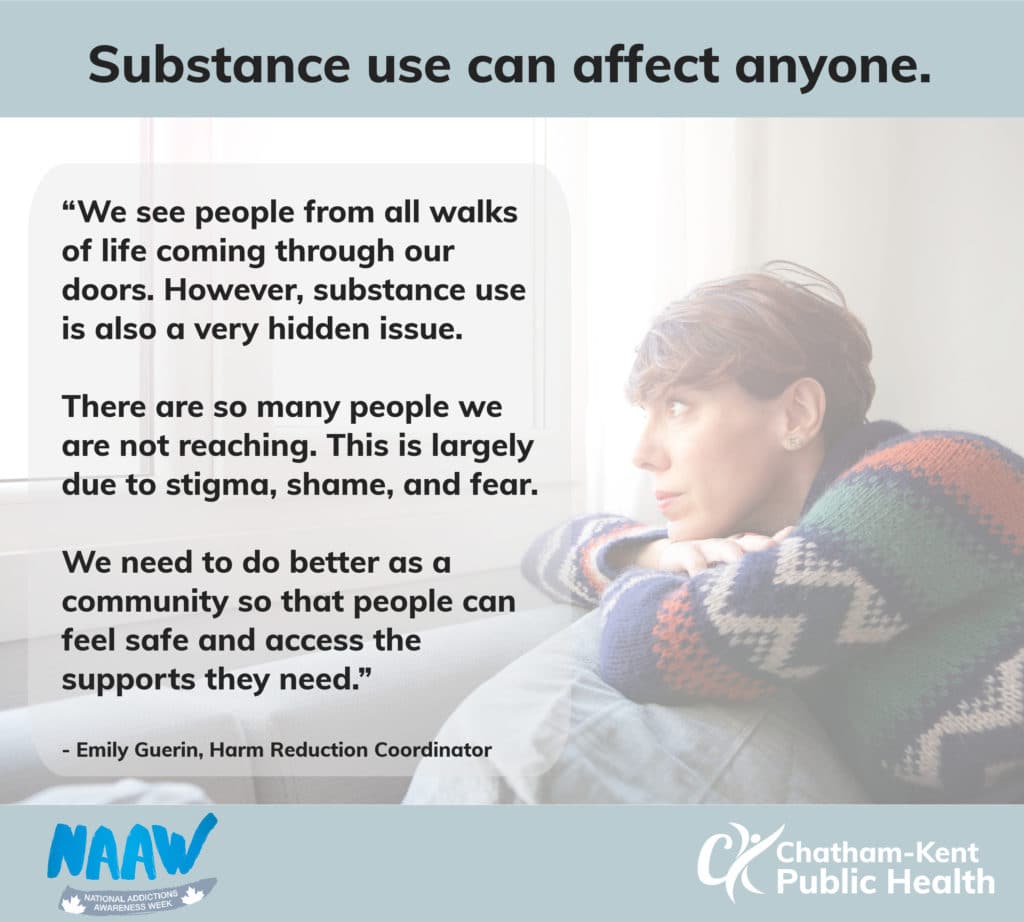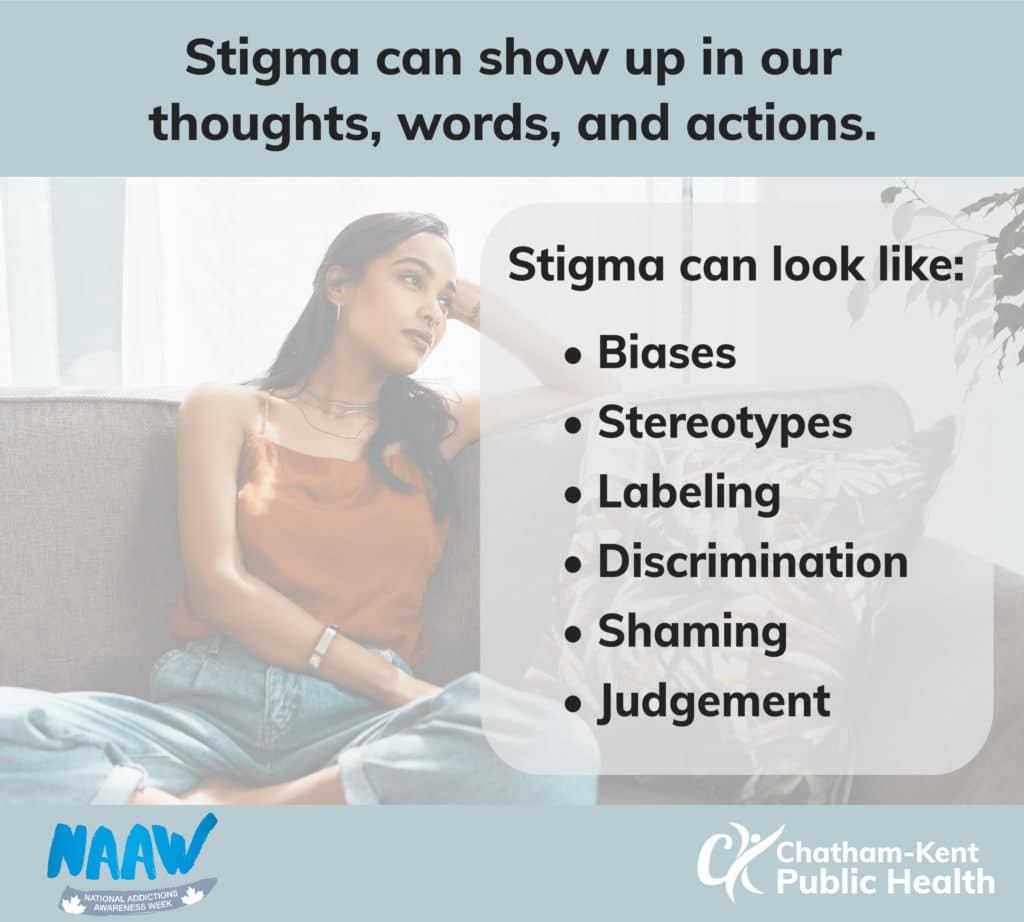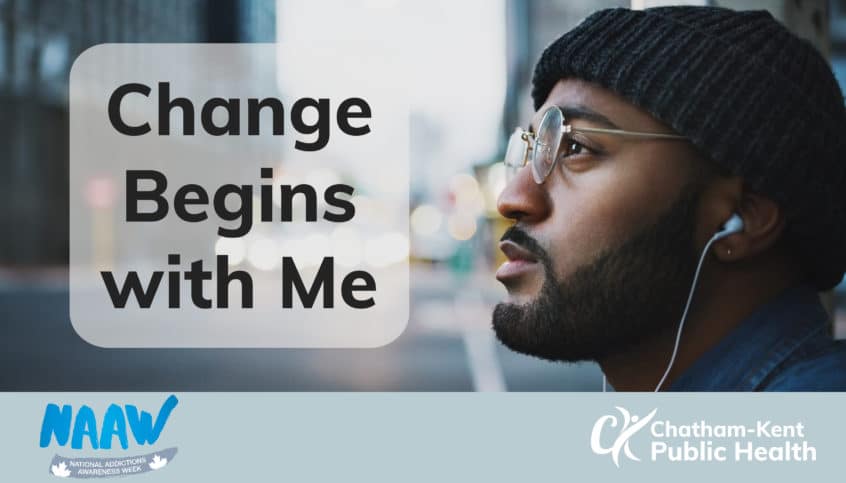The theme for National Addictions Awareness Week (NAAW) 2020 is Change Begins With Me. Join us as we explore what this means for our community, share information about local services and supports, and discuss why we need to change how we talk about and address issues related to mental health and substance use.
What do we mean when we say substance use?
Substance use, or drug use, refers to the use of any legal or illegal drugs such as alcohol, opioids, cannabis, and methamphetamines. Substance use is a health issue; not a criminal issue or a moral failing.
Some people use drugs occasionally or for recreation, and others use more regularly. There are many different reasons people use drugs. Ongoing or frequent drug use can lead to problems for some people. However, not everyone who uses drugs will experience harms or develop an addiction. In fact, substances can provide a number of benefits, such as medications used for treatment or caffeine to stay alert.
While we have come a long way, people who use drugs continue to face many barriers due to stigma.

What is stigma?
Stigma is something we are working to end. Stigma is any attitude, belief, or behaviour that discriminates, belittles, or shames people. Stigma causes trauma, feelings of worthlessness, and exclusion from society. It prevents people from seeking help, affects how services are provided, and has negative impacts on people’s well-being.
Stigma towards people who use drugs is unique. Individuals living with addiction are thought to have personal control over their disorder. They are held responsible and blamed for their drug use. In fact, studies show that addiction is among the most stigmatized conditions.

Everyone has a role to play when it comes to addressing stigma. Here are some ways you can help:
- Know the facts. Educate yourself about mental health and substance use issues. Ensure the information you use comes from credible sources.
- Reflect and be aware of your attitudes, thoughts, and behaviour.
- Use person-first language. Words are powerful. How we talk about substance use shapes our opinions and how people are treated.
- Educate others. Challenge myths and stereotypes with facts. Keep communication open and share what you learn with those in your life.
- Practice empathy. Treat those experiencing mental health and substance use issues as people. Substance use and mental health are only one aspect of a person’s life. They are a person first and foremost, and deserve to be treated with dignity.
- Offer support. Rather than judgement or shame, recognize that everyone has a story. Substance use is often a symptom of larger issues beneath the surface. We only see the tip of the iceberg.
- Learn about available resources in the community.
If you or someone you know is experiencing a mental health or substance use issue, you are not alone. Support is available.
Resources to learn more:
CMHA Mental Health First Response- 1.866.299.7447
Rapid Access to Addiction Medicine Clinic
Chatham-Kent Drug Awareness Council

